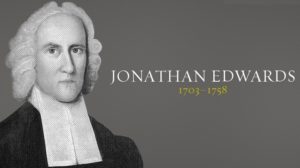In these posts I am working my way through the book of Judges to provide a strategy for preaching difficult narratives.
Whenever you preach through the book of Judges–a very brave thing to do, by the way–you will discover that there are no judges. But there are lots of people doing what was right in their own eyes. The theological reason is provided in 19:1 “In those days, when there was no king in Israel…” What could a king do?
Well, a certain kind of king could teach and enforce the ways of God among the people of God. That would put a stop to the terrible wickedness that we read about in the city of Gibeah. And, of all things, Gibeah was home of God’s people, not a “city of foreigners” (cf. 19:12). They were “Benjaminites” (v. 16). None of us readers are prepared for how wicked God’s people have become.
The story revolves around a Levite and his concubine. Davis says that “he was heading for Sodom-in-the-land-of-Israel.” The parallels between Judges 19:22-28 and Genesis 19’s famous story are numerous. What starts off with no hospitality (Judges 19:15) ends up in what might be the worst scene in all the Bible (spoiler alert: except for the Cross, of course!).
The Levite gives his concubine to “the men of the city, worthless fellows” and she is raped and killed (v. 22, 25). His insensitivity is unbelievable (v. 28). And then, the Levite follows that up with the unthinkable: “he took a knife…divided her, limb by limb, into twelve pieces, and sent her throughout all the territory of Israel” (v. 29).
The chapter closes with the people’s reaction: “consider it, take counsel, and speak” (v. 30).
If you ever preached this chapter, one challenge is to help a church realize that it could get this bad. This is how bad things can get when God is not worshiped, when American individualism fills the hearts of people in the pews. Bad example? Yes.
A bigger challenge is to see the grace of God-in Christ in this narrative. That happens when we point out that the Crucifixion of Jesus Christ was a worst crime than anything Sodom or Gibeah experienced. And, of course, it is Christ’s broken body that makes it possible for Believers to experience the kingship of God in the power of His Spirit. Preach Christ? Yes.
Preach well for the sake of His glory in the Church and in Christ Jesus (Ephesians 3:21).
Randal
P.S. I read the post and wanted to draw attention to the preaching strategy, how the narrative conveys theology for the Church.
First, the theological statement that drives the entire book is found in v. 1 (“no king”).
Second, the whole story revolves around God’s people, not pagans.
Third, the varied sins of God’s people are on display, including the most heinous ones.
Fourth, there is a clear reference to redemption in v. 30 (“the people of Israel that came up out of the land of Egypt”).
Finally, if you are inclined as I am to show how such a ghastly narrative points to Christ, look to the parallel between the concubine and the Cross.
Hope that helps.
This was originally posted on December 13th, 2016.











